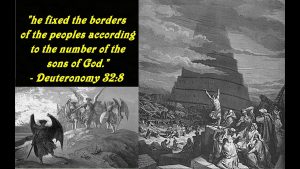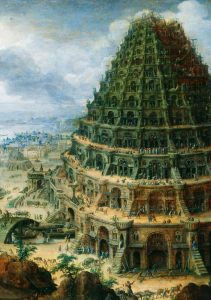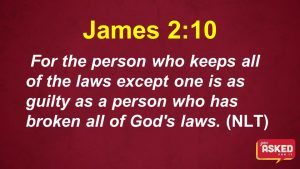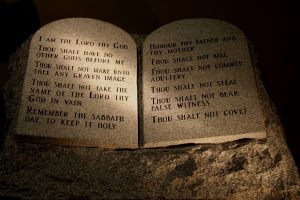
Shownotes
Wisdom-Trek / Creating a Legacy
Welcome to Day 1291 of our Wisdom-Trek, and thank you for joining me.
I am Guthrie Chamberlain, Your Guide to Wisdom
Mastering the Bible – Babel Frames History – Worldview Wednesday

Wisdom – the final frontier to true knowledge. Welcome to Wisdom-Trek where our mission is to create a legacy of wisdom, to seek out discernment and insights, and to boldly grow where few have chosen to grow before.
Hello, my friend, I am Guthrie Chamberlain, your captain on our journey to increase wisdom and create a living legacy. Thank you for joining us today as we explore wisdom on our 2nd millennium of podcasts. This is Day 1291 of our trek, and it is Worldview Wednesday. Creating a Biblical worldview is important to have a proper perspective on today’s current events.
To establish a Biblical Worldview, you must also have a proper understanding of God and His Word. Our focus for the next several months on Worldview Wednesday is Mastering the Bible, through a series of brief insights. These insights are extracted from a book of the same title from one of today’s most prominent Hebrew Scholars, Dr. Micheal S. Heiser. This book is a collection of insights designed to help you understand the Bible better. When we let the Bible be what it is, we can understand it as the original readers did and as its writers intended. Each week we will explore two insights.
Mastering The Bible – Babel Frames History
Insight Twenty-Five: The Rebellion at the Tower of Babel Frames the Rest of Biblical History

Dr. Heiser mentioned the Tower of Babel story (Gen. 11:1-9) in insight 11, which examined how ancient biblical people understood their world. Genesis 11 isn’t the only passage that talks about that event. Deuteronomy 32:8-9, one of the most important passages in the Old Testament for understanding the worldview of the people of the Bible, does as well. The NLT translates it this way:
When the Most High assigned lands to the nations,
when he divided up the human race,
he established the boundaries of the peoples
according to the number in his heavenly court.
For the people of Israel belong to the Lord;
Jacob is his special possession.
When God divided the nations—the punishment at Babel when the languages were confused—he distributed the nations among “his heavenly court.” Some Bible translations have “sons of Israel” instead of “his heavenly court.” The contextual problem with this is that Israel didn’t exist at the time of the Tower of Babel. God called Abraham and began the nation of Israel after Babel (Genesis 12). “Sons of Israel” can’t be right. “His heavenly court” or “Sons of God” as in the ESV is also what the Dead Sea Scrolls say, which is the oldest manuscripts of the Bible. The ESV and NLT has the translation correct.
Deuteronomy 4:19-20 is the opposite side of that coin as it refers to the nation of Israel, “And when you look up into the sky and see the sun, moon, and stars—all the forces of heaven—don’t be seduced into worshiping them. The Lord , your God, gave them to all the peoples of the earth. Remember that the Lord rescued you from the iron-smelting furnace of Egypt in order to make you his very own people and his special possession, which is what you are today.”

That passage has God allotting these other gods to the nations he dispersed at Babel. These two passages associated with the rebellion at Babel are the Old Testament’s explanation of why the other nations worship other gods: it’s divine punishment from the God of Israel.
So the Tower of Babel event is similar to Romans 1, where Paul tells us that God gave humankind over to its own rebellion. Because the nations would not obey him, God basically gave humanity over to lesser gods. God gave them what they wanted, which is other gods to follow. The result was self-destruction and idolatry.
This event, alongside the call of Abraham and origin of Israel that followed (Genesis 12), frames the rest of the Old Testament. It explains the spiritual conflict of Israel’s God against other gods and the nations in hostile opposition to Israel. Sadly, the gods of the other nations seduced God’s own portion, Israel (Deuteronomy 17:1-3; [29:22]-28; [32:17]).
This conflict extends into the New Testament as well. Paul rarely uses the word “demons” to describe the spiritual opposition we face. He uses words like “principalities,” “powers,” “thrones,” “dominions,” and “authorities,” which all convey the idea of geographical rulership. The message is that the whole world is under the dominion of unseen powers of darkness, except for those who are in Christ. Babel sets the stage of why that is so. It frames the nation of Israel and all its competing enemies.
Insight Twenty-Six: Neither God nor the Israelites Looked at Old Testament Laws as Equal in Character and Importance
James 2:10 says, “For the person who keeps all of the laws except one is as guilty as a person who has broken all of God’s laws.” On one level, the meaning is clear: break one of God’s laws and you become a lawbreaker. The meaning of “is as guilty” is less clear, since we are accountable to God’s law whether we break it or not. The idea actually being communicated is that guilt before God is the result of breaking any law, from the most innocuous to the most heinous. Guilt is guilt.

Does that mean that God considers every violation to be the same level of wickedness? Every sinner is guilty, but are all sins equally awful? The answer is no.
The Bible is quite clear on this matter. First, just as in our own legal/judicial system, Old Testament laws could be divided into categories. One example would be case law, that is, laws that depend on certain conditions. These Old Testament laws are expressed by if-then statements (“If X happens, then Y is the punishment”). These laws are hypothetical: the nature of the crime (and therefore its punishment) can change with a situation. Other laws are strict prohibitions, regardless of the situation. They aren’t hypothetical. These are usually expressed with the familiar “thou shalt not” phrase.
Second, Old Testament laws did not carry the same punishments. While any violation made one guilty before God, the fact that God’s law did not demand equal punishment for any violation demonstrates that all violations were not viewed the same way. The notion that God is “just as angry’’ with the person who steals an ox as he is with a blasphemer might make for good preaching, but one was punished by remuneration (Exodus 22:1) and the other by death (Leviticus [24:16]). The outcome was far from the same. And in the Old Testament, death penalty offenses could not be atoned for by sacrifice.
Third, of the many laws in the Torah, God himself singled out one that was fundamentally important to him, and therefore to his covenantal promises with his children, Israel. Loving God, being loyal to him above all gods, was fundamental to possess the Promised Land (e.g., Leviticus 26; Deuteronomy [4:25]-27, 39-40). Loving loyalty to God was the greatest commandment (Mark [12:30]-31).
The lesson is not that we can take solace in not being as bad as the next person. We are all guilty before God and undeserving of eternal life as told us in Romans 6:23, “For the wages of sin is death, but the free gift of God is eternal life through Christ Jesus our Lord.” We
all need the same grace. Instead, the lesson is that God is not unbalanced and cruel, viewing all acts of sin and evil the same way. His laws are not capricious.
That will conclude this week’s lesson on another two insights from Dr. Heiser’s book “Mastering the Bible.” Next Worldview Wednesday, we will continue with two additional insights. I believe you will find each Worldview Wednesday an interesting topic to consider as we build our Biblical worldview.

Tomorrow we will continue with our 3-minute humor nugget that will provide you with a bit of cheer, which will help you to lighten up and live a rich and satisfying life. So encourage your friends and family to join us and then come along with us tomorrow for another day of Wisdom-Trek, Creating a Legacy.
If you would like to listen to any of our past 1290 treks or read the Wisdom Journal, they are available at Wisdom-Trek.com. I encourage you to subscribe to Wisdom-Trek on your favorite podcast player so that each day’s trek will be downloaded automatically.
Thank you for allowing me to be your guide, mentor, and most importantly, your friend as I serve you through the Wisdom-Trek podcast and journal.
As we take this trek together, let us always:
- Live Abundantly (Fully)
- Love Unconditionally
- Listen Intentionally
- Learn Continuously
- Lend to others Generously
- Lead with Integrity
- Leave a Living Legacy Each Day
I am Guthrie Chamberlain reminding you to Keep Moving Forward, Enjoy Your Journey, and Create a Great Day Everyday! See you tomorrow!